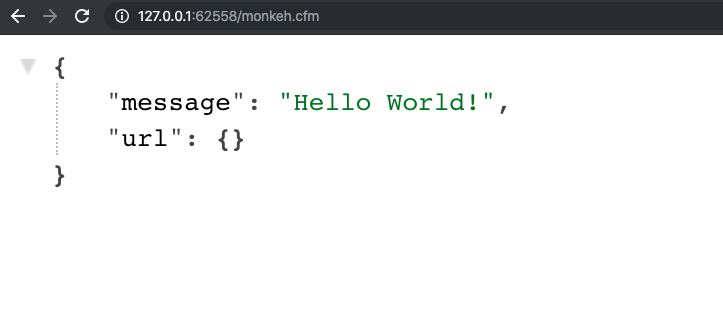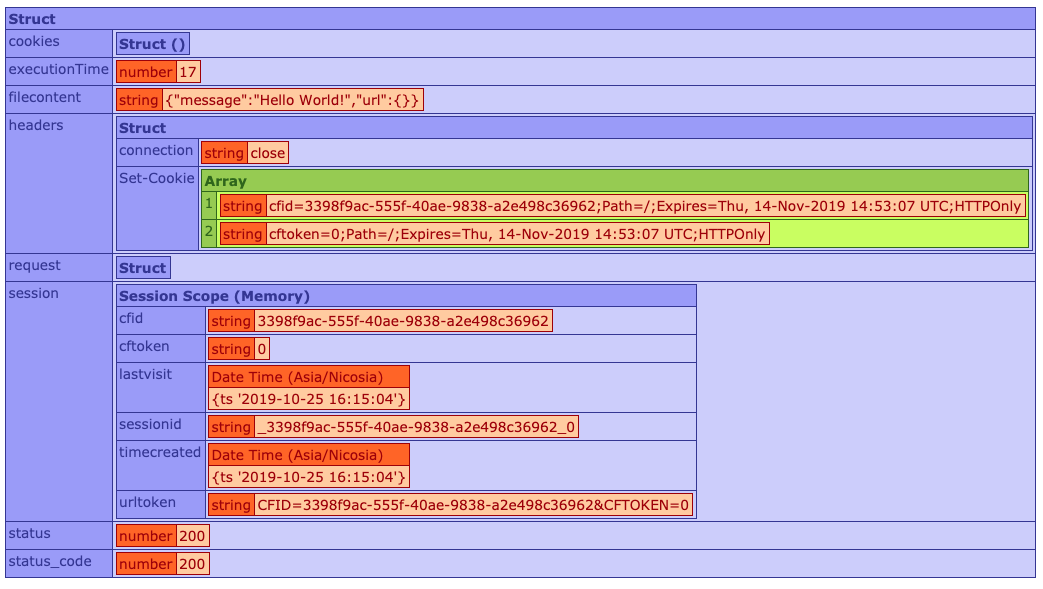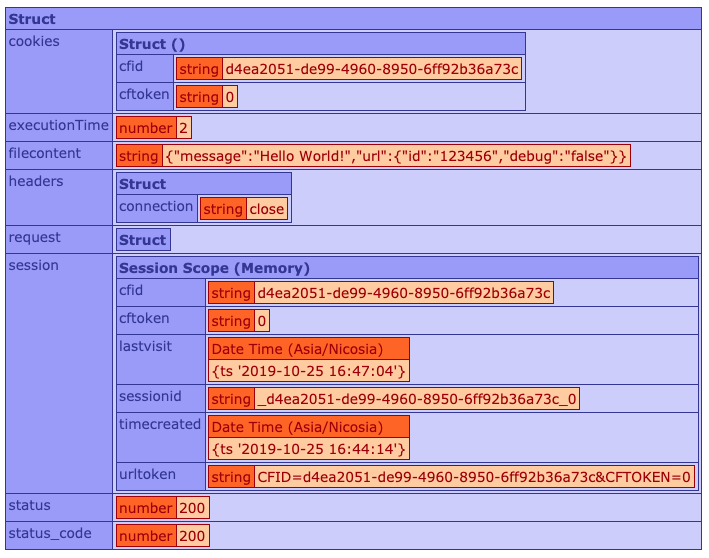Today I found out about a non-publicised hidden function in the Lucee CFML engine: _InternalRequest.
Let’s take a look at what it is and how you might use it.
What it is
This function essentially acts as an internal http request, allowing you to make a request to the CFML engine internally.
It’s not actually an http request as we currently know it, but it acts the same way and produces similar results.
Here’s a quick example.
Let’s say my application has an all-powerful template that returns some crucial JSON (impressive, right?):
If we hit that page directly in the browser we would receive the expected JSON response:

We can make the same request to the template from elsewhere within our application using the _InternalRequest() function:
This request would result in the following struct response:

Let’s update the example and send some information through in the GET request:
By sending through the url property in the function, we are effectively calling the given template as if we were requesting it directly in the browser like so: http://127.0.0.1:62558/monkeh.cfm?id=123456&debug=false
The updated response would look like this:

How you might use it
It’s a great function that can be used for making internal http requests, so you might have a use case for it somewhere within your application (perhaps in a controller where you’re calling an API module prior to rendering the template).
For me, this function opens a lot of doors when it comes to creating integration tests.
Let’s assume that I have an API template within my application and I want to run integration tests on it using TestBox to make sure that the actual code performs as expected, and not testing against a mocked version.
By using _InternalRequest, we can easily make these requests to internal templates and actually test the responses that your app would give to users.
The arguments
Here’s a breakdown of the arguments accepted by the function:
template - template path (script name) for the request (example:/test/index.cfm)
method - method of the request (GET,POST,PUT,DELETE…)
urls/url (alias) - URL scope passed to the request (query string)
forms/form (alias) - FORM scope passed to the request
cookies/cookie (alias) - COOKIE scope passed to the request
headers/header (alias) - Request header entries passed to the request
body - body to send with the request
charset - charset used for the request, if not set the web charset is used
addtoken - if yes/true, add urltoken as cookie
A detailed breakdown of the complete function data can be found in the following gist on trycf.com.

